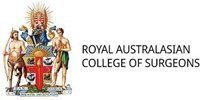LIVER CANCER
What is Liver Cancer?
Cancerous tumours in the liver can arise from the liver or spread from other primary cancers such as colon and rectal cancer.
Outcomes of patients with colon cancer spread to the liver in particular have improved dramatically in recent years with surgery and chemotherapy.
Colon cancer that has spread to the liver can be present in the liver at the time of bowel surgery, but can develop later on during follow up tests and imaging.
These tests include blood test called CEA (carcinoembryonic antigen), CT Scans, MRI or PET Scans.
What are the Types of Liver Cancer?
Different liver disorders affect the normal functioning of the liver.
- Malignant Liver Tumours
- Benign Liver Tumours
Malignant Tumours
A malignant tumour is the most common indication for a liver resection. Based on the origin, tumours in the liver are categorized into:
- Primary tumours: Originate within the liver.
- Metastatic tumours: Originate in some other organ and migrate to the liver, through the bloodstream.
Colon cancer is the most common cause of metastases to the liver.
Benign Liver Tumours
Tumours in the liver can be benign, or non-cancerous and these include
- haemangiomas,
- focal nodular hyperplasias and
- adenomas.
While being diagnosed with this on radiological imaging such as ultrasound, CT Scan or MRI can be stressful for a patient, it is important that you have the opportunity to discuss these findings.
Haemangiomas and focal nodular hyperplasias generally do not require surgery.
Hepatic adenomas that meet certain size criteria, or growth rates may need resection. Benign tumours that cause symptoms may also need surgery
Where is the Liver Located?
The liver is the largest organ in the body and is located in the upper right quadrant of the abdomen. It is a vital organ, which regulates various bodily functions and supports the normal functioning of other organs in the body.
What does the Liver Do?
The key functions of the liver are:
- Converts sugar into energy
- Aids the digestion of fats
- Helps in the excretion of waste products
- Protects against infections
- Produces blood clotting factors
- Regulates sex hormones and cholesterol level
- Supplies vitamins and minerals
- Metabolism and elimination of various drugs
Treatments for Liver Cancer
Liver surgery includes various surgical procedures performed on the liver, for the management of different diseases affecting the liver.
Liver Cancer Resection is the most common surgical procedure performed on the liver and comprises of the removal of a portion of the liver.
Single or multiple tumours involving the different lobes of the liver can be resected with a high success rate.
Liver resection may also be employed for benign tumours of the liver, such as
- cysts,
- adenomas, and
- hemangiomas.
For small and superficially located benign tumours, a laparoscopic approach can be employed for the resection.
Liver resections require blood transfusion in less than 10% of patients and the procedure takes one to five hours to complete, depending on the complexity of the resection. Up to 80% of the liver can be safely resected, depending on the preexisting condition of the liver.
Liver Transplantation Surgery
A liver resection can also be performed on individuals who voluntarily donate a part of their liver to a relative that requires a liver transplant.
What is Involved in Liver Resection Surgery?
Patients are required to stay in hospital for about four to nine days post surgery. The liver is capable of regeneration but a cirrhotic liver or an unhealthy liver can not regenerate.
The complete regeneration of the resected liver to its original size, may take six to eight weeks. Good nutrition with a high protein diet is crucial for liver regeneration.
Contraindications for Liver Surgery
Patients undergoing liver surgery should be screened for various liver diseases that can affect the outcome of the surgery.
Liver surgery is contraindicated in the following conditions:
- Acute or fulminant hepatitis
- Alcoholic hepatitis
- Severe chronic hepatitis
Other conditions associated with a variable risk following liver surgery include obstructive jaundice, cardiac surgery and trauma.
Risks And Complications of Liver Cancer Surgery
Some complications associated with liver surgery include:
- Liver failure
- Liver abscess formation
- Infection around the surgical site
- Bleeding
- Blood clots
- Bile leakage
- Pneumonia
Post-operative Care for Liver Cancer Surgery Patients
Some of the basic post-operative instructions for patients undergoing liver surgery are as follows:
- The dressing over the incision is usually changed 2 to 3 days after surgery.
- Regular intake of prescribed medications is necessary for the best outcome.
- Walking and being physical helps to keep the lungs healthy and prevent blood clots from forming.
- Avoid consumption of alcohol.
- Do not eat or drink anything for the first 24 hours after surgery.
- Patients will be gradually started on a liquid diet followed by solid foods.
- Avoid lifting anything heavy for at least 6 to 8 weeks..
In some patients with extensive liver cancer it might be more successful to remove all the lesions over two operations as opposed to one.
















